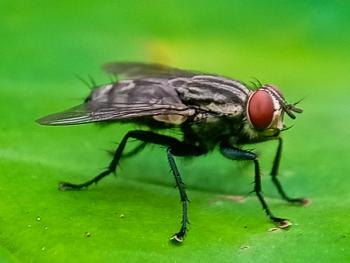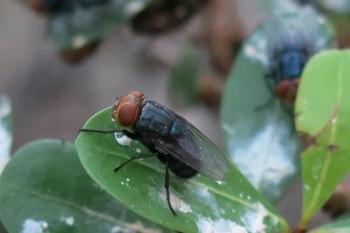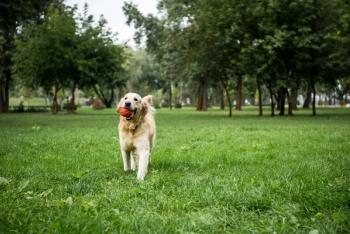
Parasites developing widespread resistance to dewormers, researchers say
University of Georgia investigators warn of 'significant threat' to livestock industry.
Years of overusing deworming drugs on our nation's farms may finally be catching up to us, say researchers at the University of Georgia. According to a recently published study, parasitic worms that infect cows, goats, sheep and horses are becoming increasingly resistant to drugs that have commonly been used to control them.
Ray Kaplan, DVM, PhD, a professor in the university's department of infectious diseases, has been studying this kind of drug resistance for years and says that continued overuse of deworming drugs may soon lead to a population of intestinal parasites that cannot be killed. "We're already seeing the worst-case scenario playing out," Kaplan says. "In goats particularly, which have the worst problems with parasites and drug resistance, we quite frequently see farms that have parasite resistance to all dewormers. Some of these farms reached the point where they no longer could control the effects of the parasites and decided to go out of business."
For years, farmers and ranchers have been prophylactically administering dewormers to their livestock to enhance growth and productivity, but with continued use, parasites have grown increasingly resistant to many of these drugs, forcing farmers to seek out alternative drugs or rely on their own concoctions for parasite control. Kaplan warns that if the industry fails to recognize the severity of the situation and continues to overuse dewormers, many farmers will be driven out of business, thanks to poor productivity and profitability from their herds.
So what can be done to resolve the situation? Kaplan suggests that farmers embrace a new way of thinking when it comes to parasite control. First and foremost, he recommends reserving drug use for only those animals that suffer from large or dangerous parasite burdens, which will expose fewer parasites to the drugs and thus minimize resistance.
He also suggests that farmers consider changing the grazing patterns of their livestock. When animals are allowed to graze freely, they naturally gravitate toward certain areas of pasture and risk coming into contact with more fecal matter, the vehicle for parasite transmission. However, if farmers divided their pastures into segments and frequently rotated their herds to new grass, the animals would encounter less fecal material and the likelihood of parasite ingestion would decrease. In addition, parasites left behind on temporarily unused pastures would eventually die off.
"We're trying to change the paradigm of parasite control so that farmers are willing to accept a certain level of production loss in exchange for sustainability," Kaplan says. "We need to use less of these drugs and use them more intelligently and selectively."
Kaplan's full study results can be found in the May 2012 issue of Veterinary Parasitology.
Newsletter
From exam room tips to practice management insights, get trusted veterinary news delivered straight to your inbox—subscribe to dvm360.






